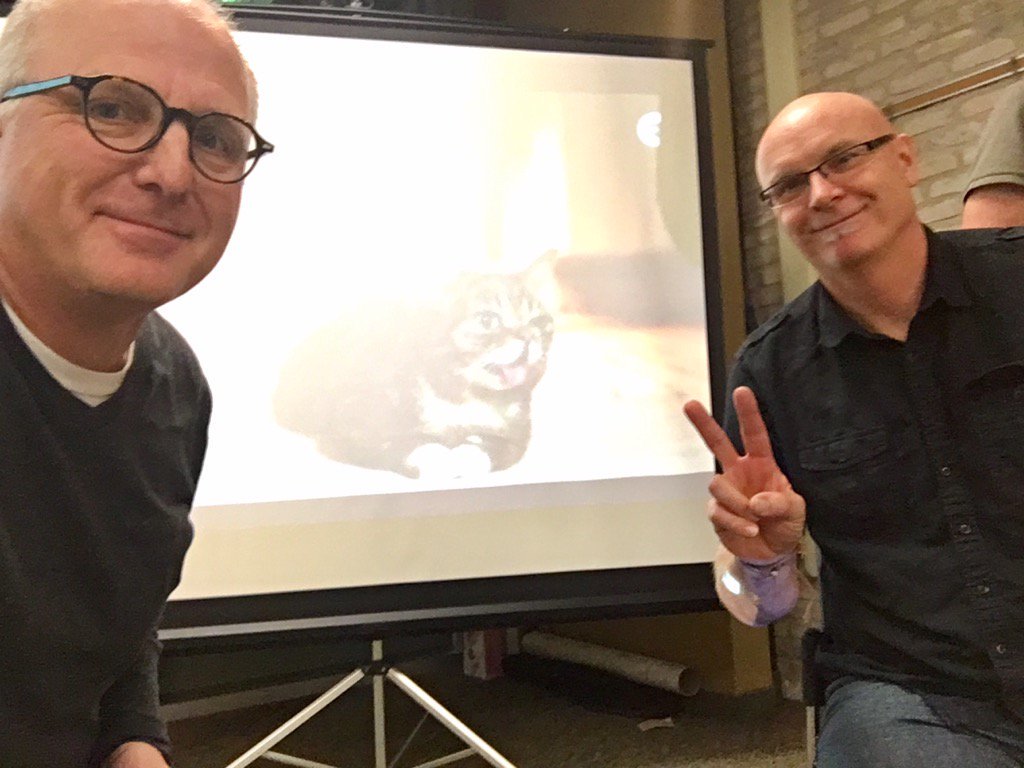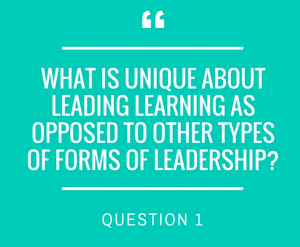The Unique Leadership Challenges in Education

Last Thursday I had the privilege of participating in a live twitter chat. Hosted by #MBEDchat in Winnipeg, about 30 folks gathered live and others joined online to discuss the topic of Leading Learning. Rex Ferguson-Baird and I led the conversation around 4 big questions.

The first question we posed was: “What is unique about leading learning as opposed to other forms of leadership?” As educators, I think it’s important for us to look outside ourselves and our institutions for lessons and ideas on how to make learning and our schools better. There are oodles of books and resources on leadership in particular from business, sports, religions and more. But there are some things that perhaps others can’t really help us with. Things that are unique to education.

This question fostered great discussion in the room and online. As I listened, I was able to identify three specific areas that require leadership that I think is indeed unique to learning.
- Success is hard to measure. Whether it’s student learning or school improvement, assessment and evaluation remain one of the most challenging things we do. In business and sports and most organizations, the metrics of success are typically very straight forward. Disagreement among educators is still a battle let alone the debate amongst policy makers and the public at large. Leaders are faced not only with addressing this issue but in trying to keep stakeholders happy.
- Isolation. There aren’t many professions where individuals have been as alone as educators. Certainly, the recent trend is to be more collaborative but the basic parameters of the school day and its structures, make creating community and shared vision an ongoing battle. Leaders are faced with creating opportunities and reasons for educators to work together.
- Niceness. This one is tied very closely to isolation in many ways. Educators are among the nicest people I know. Indeed part of the job includes teaching children manners and respect. The difficulty comes in change and improvements. Perhaps because of isolation, we find it difficult to sometimes say the things we need to say. Certainly, the solution is not meanness, but great leaders need to provide ways for everyone to push each other’s thinking and practices. The goal isn’t to be mean but I’d suggest we’re so concerned with being nice, we often ignore opportunities to challenge each other. This is a delicate play. Creating space for people to be open and honest and remain kind and thoughtful. Part is this is about trust, which is about relationships which is hard to do if we remain isolated. I don’t know of another industry more adversely affected by niceness than educators.
I’m sure there are unique challenges that leaders in education face that I’ve not mentioned. That’s where you come in. Please share a comment to share something else or to respond to the ideas I’ve shared here. Thanks again to the folks at MBedchat for organizing a thoughtful conversation.
cross-posted at ideasandthoughts.org/
Dean Shareski is the Community Manager of the Canadian DEN (Discovery Educators Network) and lecturer for the University of Regina. With 24 years of experience as a K12 educator and consultant, he specializes in the use of technology in the classroom. Read more at ideasandthoughts.org.
Disclaimer: This weblog contains the opinions and ideas of Dean Shareski. While there may be references to my work and content which relates directly to my work, the ideas are mine alone and are not necessarily shared by my employer.
Tools and ideas to transform education. Sign up below.
